★★★
“…and one big cup of WTF?”
This is going to be a difficult review to write, and, for once, it’s the synopsis section which will be the problem. Because I can’t honestly say, with any degree of confidence, I know what was going on here. Rather than a standalone, coherent entity, this felt more like being dropped into the middle of a long-running TV show – one based on a series of books I’ve never read, but adapted on the basis viewers would know it well. I’ve seen a few Chinese films which have adopted a similar approach, taking legends familiar to local audiences and creating something all but incomprehensible elsewhere. This Argentinian movie generates similar feelings of baffled amazement. I’m going to start by copy/pasting the official synopsis:
The story of Daemonium begins in an alternate universe to ours, in which Magic and Technology Coexist with Humans and Demons. In Daemonium we see Razor rise to power! (He will be the new image of a dystopic power and seeks a full out war with Hell the demons that dwell there and anyone that stands in his way!), the doubts of Rebbecca (who will question everything she knew for a fact about her life), Lisa, a common woman with an unthinkable destiny (womanly force on their way), and the wizard and con artist Fulcanelli (facing his own destiny regardless of his intentions).
I trust that has cleared everything up. No? Well, it is at least an accurately confusing representation of how I feel. Let me try again. The heroine plays at least five different roles, including fallen angel Azazel, and three different android versions of herself, Loly, Nancy and Victoria. They’re embroiled in a battle between good and evil, alongside the morally ambivalent magician Fulcanelli (Cornás), after a portal to another world is opened, allowing a demonic entity to escape. The demon makes a deal with mercenary, Razor (Casco), for the usual wealth, power, etc, although Razor’s pregnant wife, Lisa (Presedo) is kidnapped and turned into a assassin, targeting her husband. But it’s Fulcanelli and Azazel who may be key to stopping the threat.
Even if I can’t say I comprehended much of what was happening – perhaps its origins as a five-part web series were an issue – I was certainly never bored. Clinging on to any passing scraps of coherence like a drowning man clutching a piece of driftwood, certainly. But bored? Not at all. For it looks very slick, and doesn’t pull any punches at all, particularly at the end, when the heroine enters full-on (and literal) “avenging angel” mode. The director is best known for a series of horror films, Plaga Zombie, and brings much the same enthusiastic eye for mayhem and splatter to this. I’d love to see what he could do with the same universe – only operating with a script which focused on telling a cogent and compelling story, rather than galloping from one cool sequence to the next, like a hyperactive child in a toy-store.
Dir: Pablo Parés
Star: Caro Angus, Walter Cornás, Dany Casco, Rocío Rodríguez Presedo






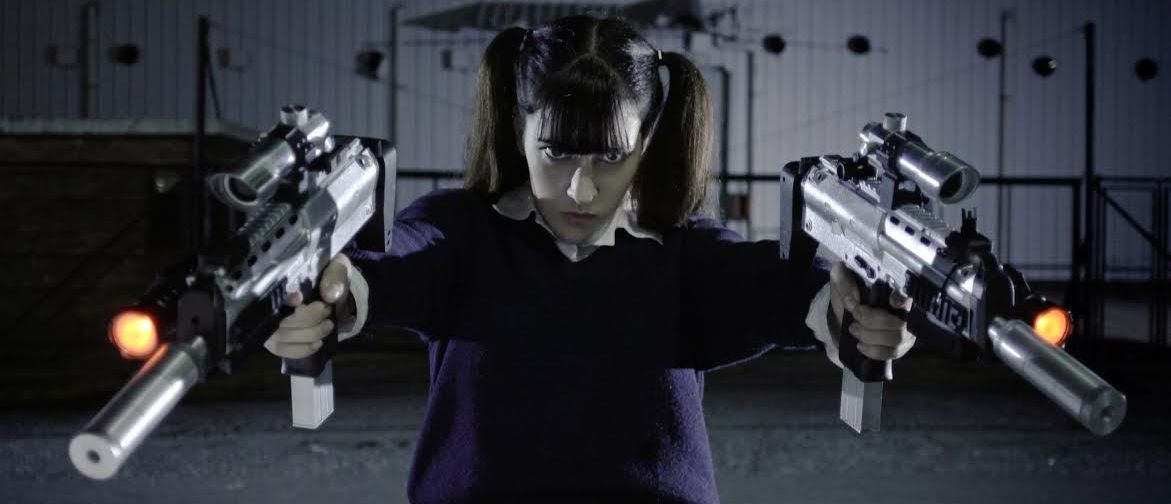
 Yoga instructor May (Biel) is delighted when she finally tracks down her long-lost biological sister, Shiva (Mamet) whom she has never met. However, the reunion is soured because May discovers the abusive relationship in which Shiva is embroiled. Worse is to come, as she finds out that Shiva is actually a hooker, and her significant other, Cody (Anderson), is more pimp than boyfriend. May’s efforts to help her sibling run into stormy water – not just from Cody, but also her own boyfriend, Dex (Gathegi) and adopted mother, who think Shiva and Cody are just shaking May down. Eventually, the point comes where May has to come out of this middle-class comfort-zone, because the downward dog position isn’t going to help her and Shiva escape their increasingly perilous situation.
Yoga instructor May (Biel) is delighted when she finally tracks down her long-lost biological sister, Shiva (Mamet) whom she has never met. However, the reunion is soured because May discovers the abusive relationship in which Shiva is embroiled. Worse is to come, as she finds out that Shiva is actually a hooker, and her significant other, Cody (Anderson), is more pimp than boyfriend. May’s efforts to help her sibling run into stormy water – not just from Cody, but also her own boyfriend, Dex (Gathegi) and adopted mother, who think Shiva and Cody are just shaking May down. Eventually, the point comes where May has to come out of this middle-class comfort-zone, because the downward dog position isn’t going to help her and Shiva escape their increasingly perilous situation.
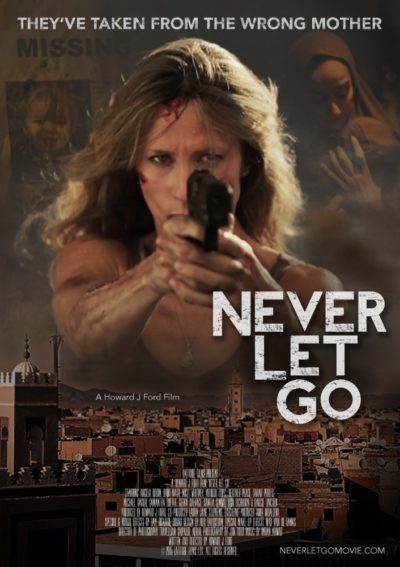 Based on the title and synopsis, I was expecting something like a Lifetime TV Movie. A mother frantically searching for her abducted child in a foreign location, before they can be sold off to some rich Arab, would seem right up their alley. [Though of course, this kind of thing has long been a popular subject for exploitation, to the point where the Hays Code of the thirties had explicitly to ban movies about “white slavery”] It’s a good deal grittier and harder hitting than that, though could have done with much better explanation of why this momma bear is so ferocious – among a number of other aspects.
Based on the title and synopsis, I was expecting something like a Lifetime TV Movie. A mother frantically searching for her abducted child in a foreign location, before they can be sold off to some rich Arab, would seem right up their alley. [Though of course, this kind of thing has long been a popular subject for exploitation, to the point where the Hays Code of the thirties had explicitly to ban movies about “white slavery”] It’s a good deal grittier and harder hitting than that, though could have done with much better explanation of why this momma bear is so ferocious – among a number of other aspects.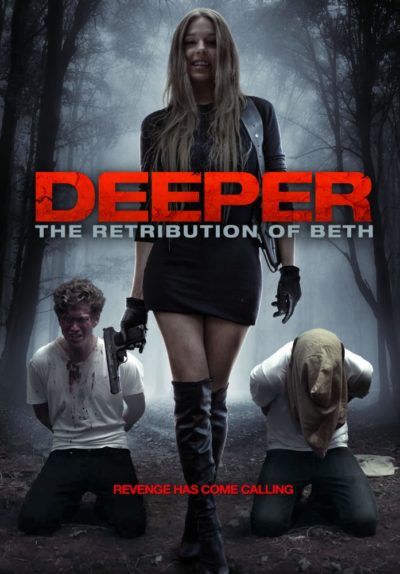 Investigative journalist Mark (Anderson) is not too happy about his latest investigative assignment: going on a ride-along with Steve (Francis), the sleazy owner of porn company “XBus”. He picks up girls on the street and supposedly, talks them into getting naked for his website, Girls Gone Wild-style. But Steve’s latest predatory mission doesn’t go as planned, after picking up the very lovely Beth (Sam) and her friend Sam (Gatien). For Beth pulls a gun, hijacks the limo, and drives the two men into the forests on the outskirts of town, clearly with savage vengeance on her mind for an incident in her – and Steve’s – past. Not quite the story Mark anticipated getting.
Investigative journalist Mark (Anderson) is not too happy about his latest investigative assignment: going on a ride-along with Steve (Francis), the sleazy owner of porn company “XBus”. He picks up girls on the street and supposedly, talks them into getting naked for his website, Girls Gone Wild-style. But Steve’s latest predatory mission doesn’t go as planned, after picking up the very lovely Beth (Sam) and her friend Sam (Gatien). For Beth pulls a gun, hijacks the limo, and drives the two men into the forests on the outskirts of town, clearly with savage vengeance on her mind for an incident in her – and Steve’s – past. Not quite the story Mark anticipated getting. Perhaps surprisingly, this is not the first attempt to cross over between the worlds of zombies and pro wrestling. There was also the imaginatively-named Pro Wrestlers vs Zombies, which included Roddy Piper, Kurt Angle and Matt Hardy. This is much lower-budget, Australian and almost certainly contains nobody of whom you’ll have heard. But what both movies share is that… they aren’t actually very good. And that’s a shame, because I’m pretty much the ideal target audience, being a fan of both wrestling and horror. That this one has a heroine, should be another factor in support of it, but it ends up falling apart and devolving into a second half that is little more than a procession of uninteresting set-pieces.
Perhaps surprisingly, this is not the first attempt to cross over between the worlds of zombies and pro wrestling. There was also the imaginatively-named Pro Wrestlers vs Zombies, which included Roddy Piper, Kurt Angle and Matt Hardy. This is much lower-budget, Australian and almost certainly contains nobody of whom you’ll have heard. But what both movies share is that… they aren’t actually very good. And that’s a shame, because I’m pretty much the ideal target audience, being a fan of both wrestling and horror. That this one has a heroine, should be another factor in support of it, but it ends up falling apart and devolving into a second half that is little more than a procession of uninteresting set-pieces.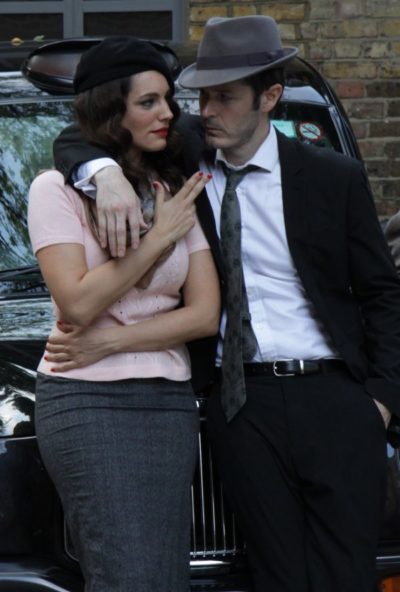 Kate’s (Brook) life has fallen apart: she has just been told the store she works at is closing because the owner is cashing in on a redevelopment offer; her boyfriend has dumped her; and Kate’s attempt at suicide by gas oven is doomed since she failed to pay the bill. What’s a girl to do? The answer is apparently, take inspiration from her heroine, Bonnie Parker. But rather than robbing banks, Kate teams up with her other disgruntled work colleagues, hatching a daring plan to copy the key to the store, seduce the safe combination out of the firm’s accountant, Mat (Williams) and plunder the ill-gotten gains.
Kate’s (Brook) life has fallen apart: she has just been told the store she works at is closing because the owner is cashing in on a redevelopment offer; her boyfriend has dumped her; and Kate’s attempt at suicide by gas oven is doomed since she failed to pay the bill. What’s a girl to do? The answer is apparently, take inspiration from her heroine, Bonnie Parker. But rather than robbing banks, Kate teams up with her other disgruntled work colleagues, hatching a daring plan to copy the key to the store, seduce the safe combination out of the firm’s accountant, Mat (Williams) and plunder the ill-gotten gains. The Brazilian special police unit, known as BOPE (Batalhão de Operações Policiais Especiais) have a ferocious reputation for a hard-edged approach to its work. This is, likely, necessary for surviving the favelas (slums) of Rio in which they operate, going up against heavily-armed drug dealers. But with this also comes a “by any means necessary” approach, which has come in for criticism. They’ve been the topic of films before, most notably the incredible Elite Squad, which is an all-time classic of action cinema (and removed any chance of us attending the 2016 Olympics). It’s into this obviously macho environment, that rookie policewoman Francis (Pires) is dropped, and has to make her way.
The Brazilian special police unit, known as BOPE (Batalhão de Operações Policiais Especiais) have a ferocious reputation for a hard-edged approach to its work. This is, likely, necessary for surviving the favelas (slums) of Rio in which they operate, going up against heavily-armed drug dealers. But with this also comes a “by any means necessary” approach, which has come in for criticism. They’ve been the topic of films before, most notably the incredible Elite Squad, which is an all-time classic of action cinema (and removed any chance of us attending the 2016 Olympics). It’s into this obviously macho environment, that rookie policewoman Francis (Pires) is dropped, and has to make her way.
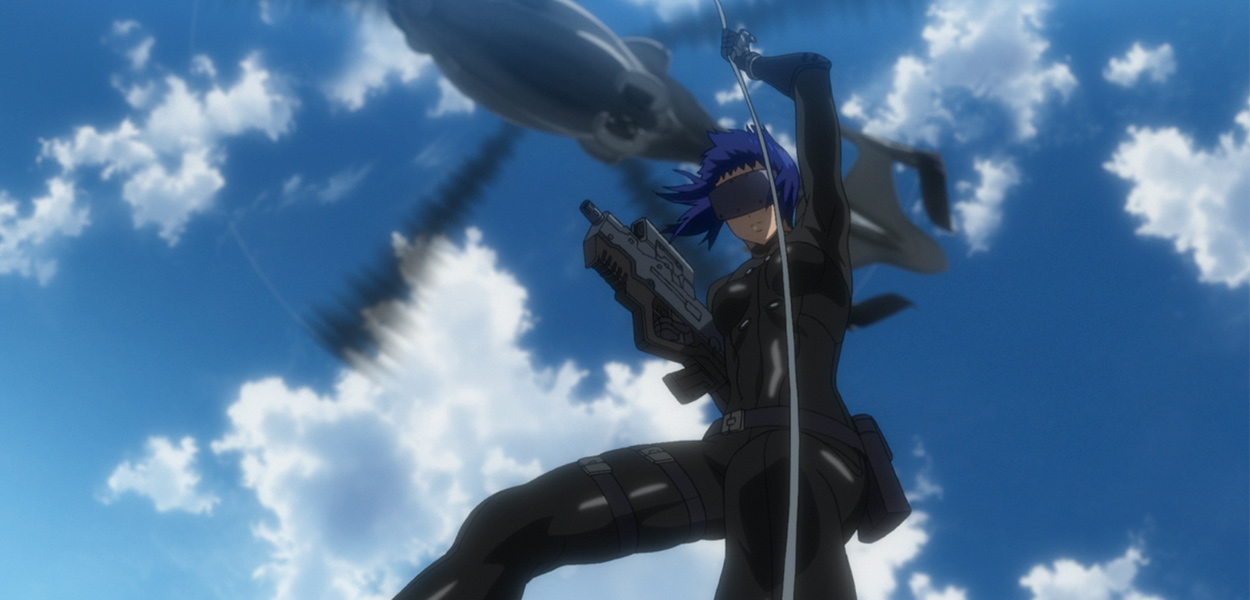
 Like much horror, the rape-revenge genre is one which overlaps with, rather than being wholly encompassed by, the action-heroine field. Some entries qualify: the awesome glory which is Ms. 45 being the most obvious example. But others appear to focus more on the rape than the revenge, and are far less interesting as a result. Such was the case for the first two entries in this series – and, indeed, the 1978 grindhouse classic which it rebooted. Here, however, in an interesting twist we bypass the assault entirely. This starts instead with the victim in the earlier movies (Butler) having adopted a new identity, that of Angela, and attending both one-on-one therapy as well as group sessions.
Like much horror, the rape-revenge genre is one which overlaps with, rather than being wholly encompassed by, the action-heroine field. Some entries qualify: the awesome glory which is Ms. 45 being the most obvious example. But others appear to focus more on the rape than the revenge, and are far less interesting as a result. Such was the case for the first two entries in this series – and, indeed, the 1978 grindhouse classic which it rebooted. Here, however, in an interesting twist we bypass the assault entirely. This starts instead with the victim in the earlier movies (Butler) having adopted a new identity, that of Angela, and attending both one-on-one therapy as well as group sessions.